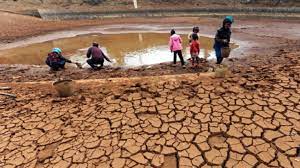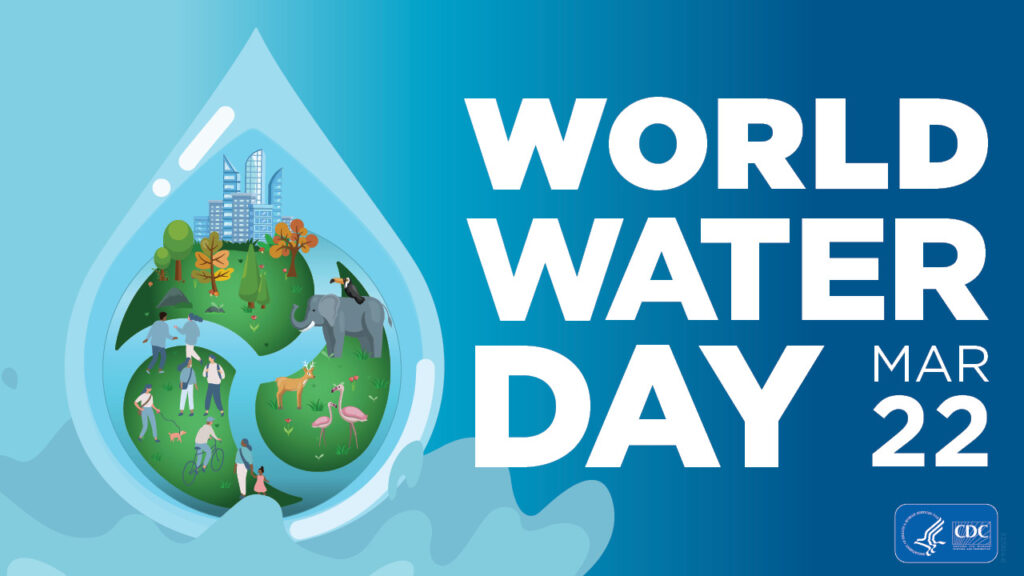Posts Tagged ‘Water’
Week FOUR of RI’s Month of Water, Sanitation & Hygiene (WASH).
Nobody takes water for granted in Zimbabwe, least of all the residents of Musekiwa and Mushaki. Located about 160 kilometers (99 miles) from the capital of Harare, the two villages have been drastically affected by the country’s water shortage. Until recently, many residents walked five kilometers (three miles) or more to find water every day. “They were getting some water from open wells, some from rivers,” says Trymore Tafadzwa Kabanda, a counselor for Mushaki. That changed when two Rotary clubs thousands of miles apart decided to collaborate on a grant-funded project. Members of the Rotary Club of Saint Helena, California, USA, learned about the villages’ situation in 2020 from a guest speaker whose wife had grown up in the area. They found out about the devastating effects climate change has had on rainfall in rural Zimbabwe, where more than 90% of households depend on agriculture for their main livelihood. “They had a horrendous water problem,” says John Muhlner, a past president of the Saint Helena club. “Women, for the most part, were walking miles every day to bring water back to their homes. Often, they would go and wouldn’t find water, or maybe the water they found would be contaminated.”
The Saint Helena Rotarians contacted the Rotary Club of Harare CBD, Harare, Zimbabwe, which conducted a community assessment. After that, the clubs raised funds and applied for a Rotary Foundation Global Grant. The US$82,000 project plan was to dig two wells, install solar-powered pumps and a water piping system, train residents to maintain the equipment, and conduct an educational campaign about the importance of hygiene….“Water touches on all of Rotary’s areas of focus,” says Mary Beth Growney Selene, chair of the Water, Sanitation, and Hygiene Rotary Action Group. “Children are not being pulled away from school to go fetch water in a local river. Parents don’t have to spend time fetching water, so they can be more productive economically. People aren’t as susceptible to waterborne diseases. ‘It all starts with water,’ is what we say.” That was certainly the case in Mushaki and Musekiwa. “Now, most of the villagers don’t have to go more than a few meters to fetch water,” Kabanda says. “Also, diseases like cholera are prevented.”
Source [https://www.rotary.org/en/value-well]
Submitted by: Christopher W Knapp, District 6000 Foundation Chair
#ServiceAboveSelf #Rotary #rotaryinternational

Did you know that today is World Water Day?
Water is something we all need to survive. But 2.2 billion people still live without safely managed drinking water. That’s more than 1 in every 4 people.
Rotary members work to keep people healthy and can even strengthen communities through projects that help people get access to clean water, sanitation, and hygiene. Rotary also has a new collaboration with the United Nations Environment Program that empowers members to clean up, protect, and monitor their local waterways.
#WorldWaterDay #Rotary #TRFRotary #ServiceAboveSelf
#Water

Did you know???
“It’s Week THREE of RI’s Month of Water, Sanitation and Hygiene (WASH).
The lack of access to clean water, sanitation facilities, and hygiene resources is one of the world’s biggest health problems—and one of the hardest to solve. According to a UN statistic:
About 663 million people do not use an improved drinking water source, most of whom are poor and in rural areas.
2.4 billion people live in water-stressed countries
Almost 950 million people still practice open defecation.
81% of species dependent on inland wetlands have declined since 1970
At least 3000 children die every day from diarrheal diseases—an avoidable consequence of poor water, sanitation and hygiene.
Over the past several years, Rotary has shifted its focus to also emphasize education, collaboration, and sustainability in WASH. With Rotary Foundation Global Grants, a dedicated Rotarian Action Group, and a partnership with the US Agency for International Development (USAID), Rotary’s water, sanitation, and hygiene programs are achieving greater, longer-lasting change.
When people have access to clean water and safe sanitation:
waterborne diseases decrease
children stay healthier and attend school more regularly
mothers can spend less time carrying water and more time helping their families.” – Olabisi Gwamna
#ServiceAboveSelf #Rotary